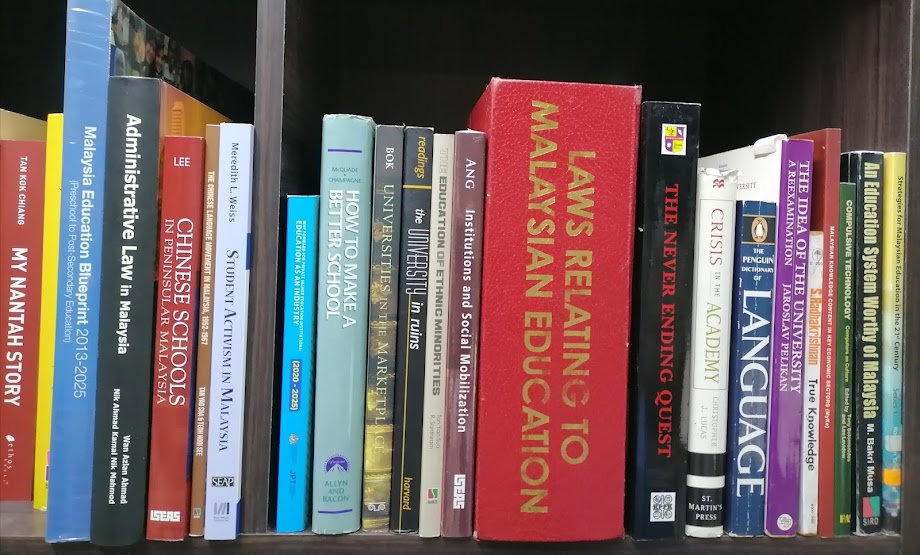The interference with the management of schools continues
apace with those transgressing the sacred space showing no respect or understanding
of the policies or objectives of the educational system.
The latest incursion objecting to simple decorations in a
school in Puchong for the Chinese New Year celebration shows how out of touch
these warriors of spurious causes are with the great efforts that have gone
into building our educational system.
One of the main thrusts of educational policies has been,
from the time of independence, to promote an educational system that that is
‘acceptable to all the people of the Federation as a whole which will satisfy
their needs and promote their cultural, social, economic and political
development as a nation’. (Report of the Education Committee 1956.)
Large sums of money were expended in developing a national
curriculum for schools. Even more money was spent on developing a Blueprint for
Education to chart the development of schools for the next, at least 10 years.
Nowhere in these documents is there a concern that a celebration of the
festivals of the people of this country would pollute the minds of the young or
lead them away for the religious path that is ordained by parents of the
children who attend the schools.
The Education Blueprint 2013-2025, which is the most significant review of education after the 1956 Report declares unity as one of
the five aspirations of reform.
The Blueprint’s vision of unity is expressed in terms that
go beyond just bringing people together. Diversity is the education itself.
And it is an enriching education that is built on diversity.
“As students spend over a quarter
of their time in school from the ages of 7 to 17, schools are in a key position
to foster unity. Through interacting with individuals from a range of
socioeconomic, religious, and ethnic backgrounds, students learn to understand,
accept, and embrace differences. This creates a shared set of experiences and
aspirations to build Malaysia’s future on. The Ministry aspires to create a
system where students have opportunities to build these shared experiences and
aspirations that form the foundation for unity.” (Education Blueprint
2013-2025)
Puerile protests about simple matters as celebratory
decorations in schools offend these policies and do great harm to the
educational process. They have no knowledge of policies on education or the
important role schools play in developing the young.
Our schools are being made the battleground for
every rabid idea in society about the purpose of schools. There seems to be no
end to the way our schools are abused. It also appears that there are too many
people who have no gainful ways to spend their time are camping outside the
schools to disturb the purpose of schools with their tedious complaints about
how schools threaten everything from God to the way food is eaten in school canteens.

